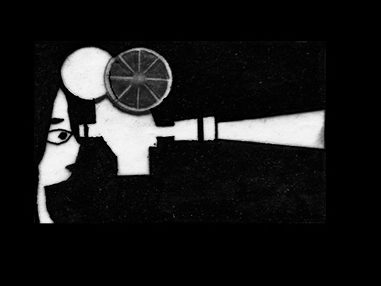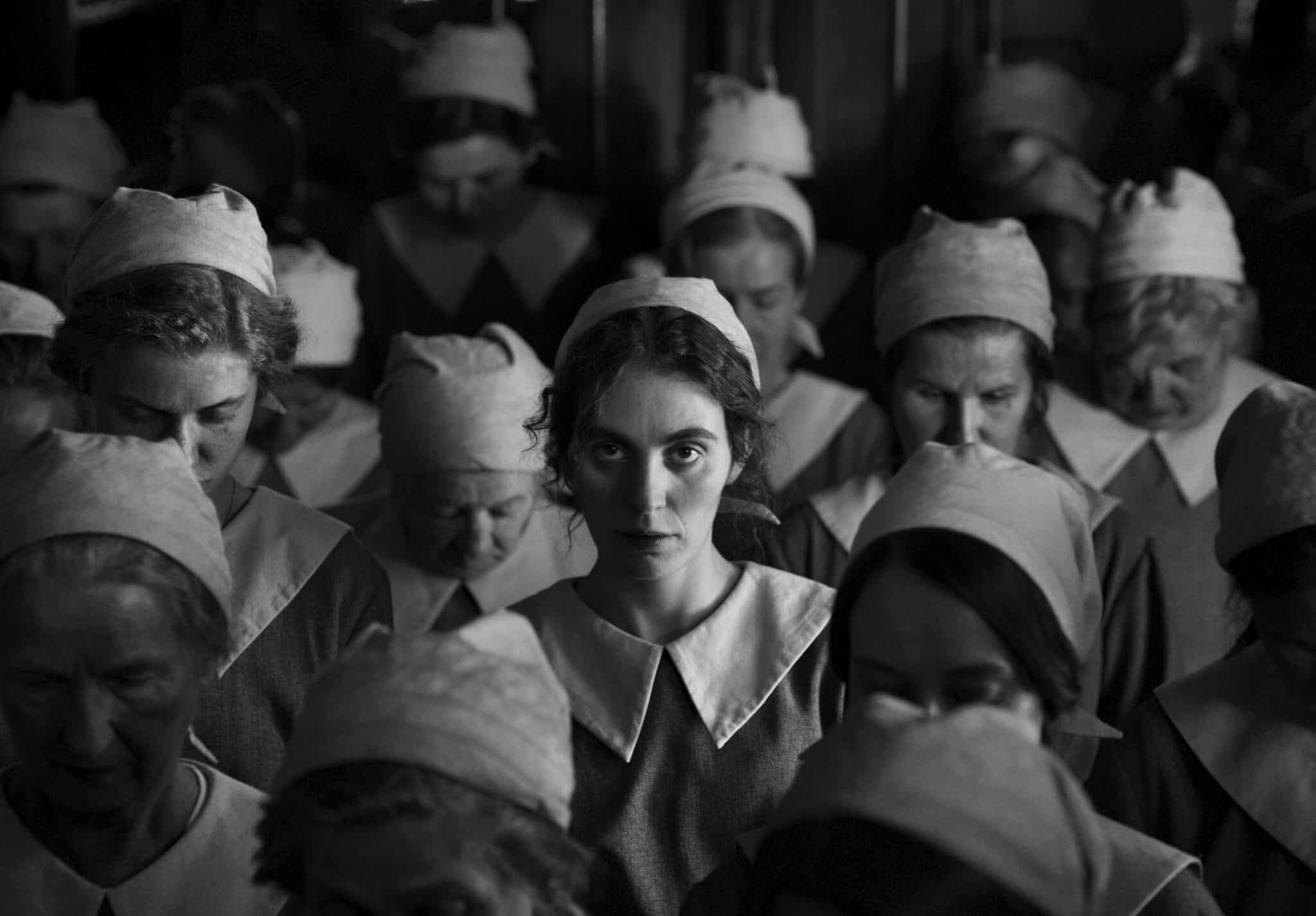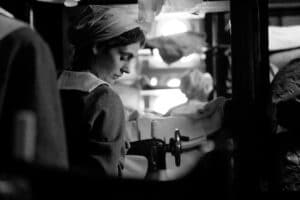The Girl with the Needle by Magnus Von Horn
The Girl with the Needle was screened in the official selection at the Cannes Film Festival 2024.
SYNOPSIS
Copenhagen, 1919.
The young and pregnant Karoline accepts a position as a nanny for an older woman named Dagmar in order to support herself.
Dagmar runs an underground adoption agency under the guise of a confectionery shop, helping disadvantaged mothers place their unwanted newborns into foster families.
Karoline grows closer to Dagmar, but she soon faces the nightmarish reality she has unknowingly entered.
A period film about the story of Dagmar Overbye, who murdered dozens of infants in Copenhagen in the 1910s and was sentenced to life imprisonment.
By the Swedish director of “Sweat” (2020).
REVIEW
This is the film that has divided critics the most since its first-week screening.
I am among those who enjoyed The Girl with the Needle, a dramatic and horror black-and-white film, based on the true story of a baby murderer.
This horrific fairy tale for adults is a tribute to women and motherhood.
Karoline, a very poor young woman, is several weeks behind on rent and is evicted from her home. On her face, Karoline already bears all the sadness in the world. She works in a clothing factory where women sew uniforms for World War I soldiers. Her husband is missing and she is not entitled to any pension.
But the horizon seems to brighten when the factory manager falls in love with her. Karoline becomes pregnant. But to avoid losing his money held by his mother, her suitor leaves her.
Karoline finds herself alone again, this time pregnant. She then tries to abort in the public baths using a knitting needle. (Hence the title).
But the abortion fails. She is saved by a woman, Dagmar, who runs an underground adoption agency. This is the encounter that will change her life for the worse and for the worse.
After the war ends, her husband returns. He is a “broken face” (disfigured). He accepts Karoline’s child, who is born under difficult conditions. But Karoline doesn’t want it and runs away with her baby. She decides to stay with Dagmar and her 6-year-old daughter. Her baby, she thinks, is adopted.
Behind the confectionery shop, hell.
Dagmar receives women of all ages, accompanied or not, who come with a baby in their arms, a baby they cannot afford to keep. These unwanted babies are a burden for young mothers or older ones who already have four or five children.
Dagmar promises them that wealthy and educated families will adopt and take great care of their babies. By her side, Karoline helps manage the reactions of these distressed women. She nurses the baby until it is “adopted”. And in the evening, she nurses Dagmar’s possessive daughter, who has an unhealthy relationship with motherhood… And soon we understand why.
One day, Karoline discovers that none of these babies have been adopted… She wants to flee but lives under Dagmar’s control. She has no one to rely on and this older woman is a refuge, perhaps a surrogate mother.
Soon, the murders will be discovered, and Dagmar will take full responsibility.
Magnus Von Horn‘s film also speaks to us about love. These women are exhausted by their motherhood, beyond the lack of money, they are no longer able to give love to other children.
Did these women have a choice?
In the end, there remains a bit of hope, as we are left breathless.
Direction
The images and music by Frederikke Hoffmeier plunge us into the heart of hell. The hell of an era made of the traumas of World War I, where misery reigns, and where women have no freedom.
Hitchcock and Bergman have strongly influenced Magnus Van Horn. We oscillate constantly between thriller and horror, always feeling fear. The black-and-white enhances the dark side of the film, immersing us in an endless night.
Actresses Vic Carmen Sonne (seen in Hlynur Pálmason’s “Godland” and Isabella Eklöf’s “Holiday”) as Karoline and Trine Dyrholm as Dagmar are extraordinary. Their performances are so convincing that one wonders how they managed to extricate themselves from their roles.
As Dagmar says, “The world is a horrible place,” “But we need to believe it is not so.”
A very great film. Let’s hope it wins an award or a Palme.
In official competition at the Cannes Film Festival.
More information about the Cannes Film Festival



